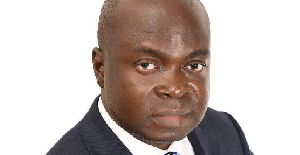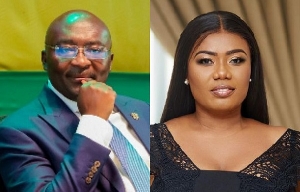Opinions of Thursday, 23 April 2015
Columnist: Sarpong, Justice
How Nkrumah’s United Africa Ideologies Backfired -Part 1
Analyzed by Bamba Mass
Legacies of the Nkrumah Ideology
Post-independence African history is instructive in understanding the scourge of the one-man, and the curse of one-party rule in Africa but Ghana's independence from colonialism as the first sub-Saharan African country in 1957, and the role played by its first prime minister turned President Kwame Nkrumah, is central to understanding the pervasive problem of civilian and military dictatorships in Africa.
Ghana was undoubtedly the most economically and socially advanced country in sub-Saharan Africa with an advanced educational system and relatively well-developed infrastructures when it gained its independence. Nkrumah was a role model for dozens of leaders of African countries that achieved independence in the 1960s and 1970s.
Despite Nkrumah's status as the unrivaled champion of Pan-Africanism and strong advocacy for a united Africa, he was also responsible for casting the mold for the one-man, one-party dictatorship in post-independence Africa. Barely a year into his administration, the once fiery anti-colonial advocate of political rights and democracy had transformed himself into a power-hungry despot.
He enacted a law making labor strikes illegal and declared the right to strike "unpatriotic." Paranoid about his opposition, he enacted a preventive detention act which gave him sweeping powers to arrest and detain any person suspected of treason without due process of law. He even dismissed the chief justice of Ghanaian Supreme Court, Sir Arku Korsah, when a three-judge panel Korsah headed acquitted suspects accused of plotting a coup. Nkrumah amended the constitution making his party, the Convention People's Party, the only legal party in the country. He capped his political career by having himself declared president-for-life.
But he was then a man of two faces while he succumbed to two contradictory tendencies within Ghana at the time – the monarchical tendency, which increasingly turned him into a Royal figure, on the one hand, and the Leninist tendency towards the vanguard party and the single-party state, on the other hand. When the monarchical and the Leninist tendencies fused, they basically produced "a Leninist Czar" – a figure using sacred symbolism like Osagyefo (Redeemer) for himself, on the one side, and class-analysis for the rest of the society, on the other.
Kwame Nkrumah became increasingly aloof from the Ghanaian society while simultaneously bowing down to the applause of the rest of Africa. He was ironically characterized Africa's hero but Ghana's dictator.
The fundamental question that lingers in the minds of intellectuals is whether Mr. Nkrumah should be touted for being the originator of one-party state in Black Africa. As the first Black African country to win independence, Ghana had immense responsibility. And poor Kwame Nkrumah was the beast of burden on whom Africa had piled her weighty hopes. The rest of Africa looked to Nkrumah for a sense of direction. Some of us looked to him for immortal precedents.
Was it fair to Nkrumah?
For better or for worse, the two most historically significant Ghanaian heads so far have been Kwame Nkrumah and Jerry Rawlings. They both had enormous consequences for Ghana. While Jerry Rawlings started off as a brutal dictator and ended his career as a democrat, Kwame Nkrumah started his career as a democrat and ended it as a dictator. They were two sides of a coin.
Three factors led Kwame Nkrumah towards the one-party state. The first factor was the belief that the country was ethnically and regionally too dangerously divided for a multiparty system. Did he genuinely believe that the one-party state was the only way of integrating Asante (Ashanti) into Nkrumah's Ghana? Was the one-party state the antidote to political tribalism?
The second factor which persuaded Nkrumah towards the single-party was the cultural argument that African political systems operated on the basis of a consensus. It was therefore better to look for manipulated consensus than allow for free dissent.
The third factor which moved Nkrumah towards one-partyism was Leninism. In his years as a student in the United States, Nkrumah acknowledged that the most powerful influences on his mind had been Marcus Garvey (a Black nationalist) and V.I. Lenin. In reality the Leninism in Nkrumah outlasted the Garveyism.
By the time he was overthrown in a military coup in 1966, Ghana had fallen from one of the richest African countries to one of the poorest.
Reproduced by
Justice Sarpong
(CARDINAL of TRUTH)




![Mohammed Ablorh [L] and Wesley Ayi Bonte [R] Mohammed Ablorh [L] and Wesley Ayi Bonte [R]](https://cdn.ghanaweb.com/imagelib/pics/232/23298154.295.jpg)







